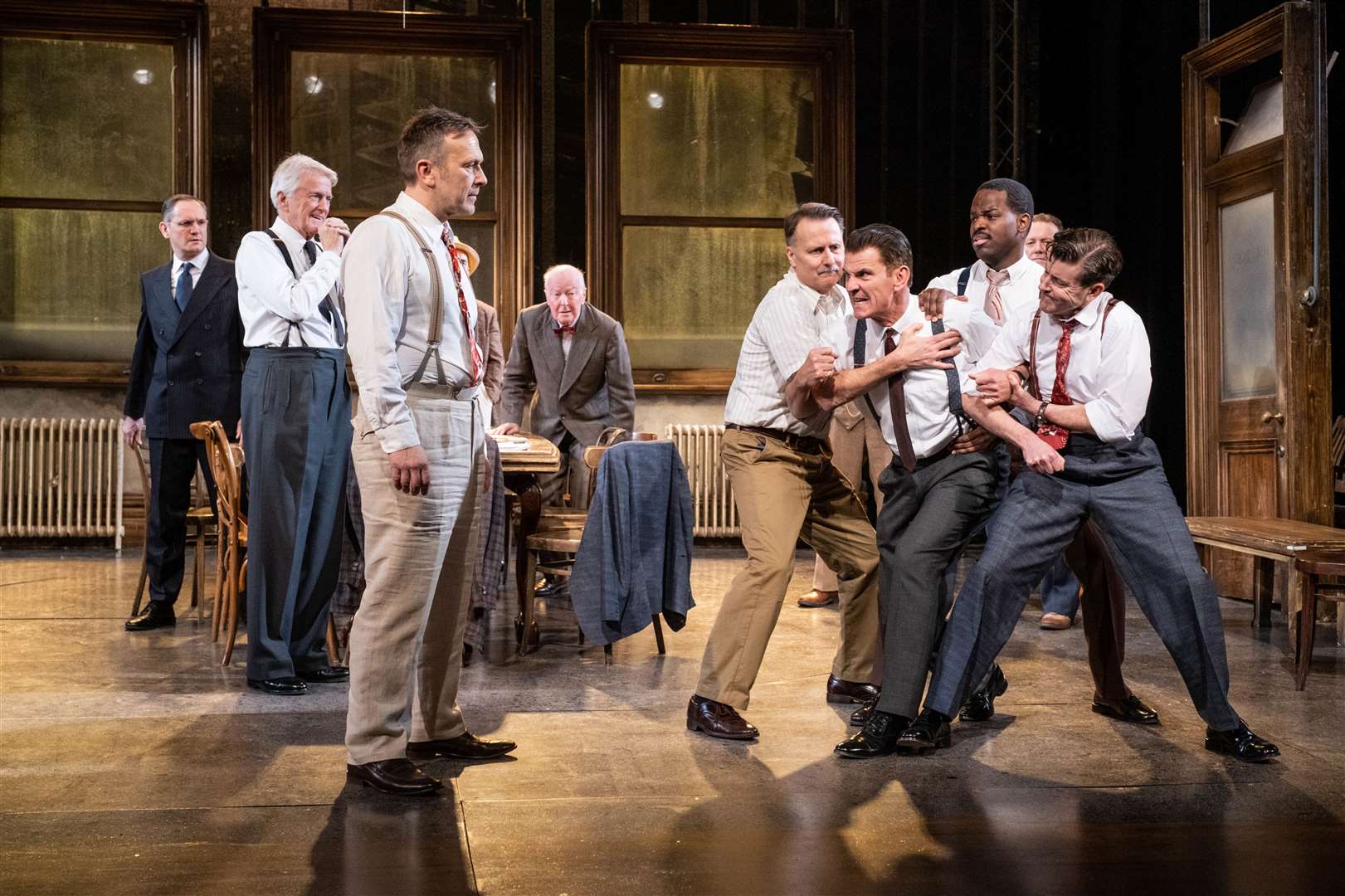Sidney Lumet’s film 12 Angry Men, based on Reginald Rose’s teleplay, stands as a classic exploration of the American justice system and the intricate ethical issues woven into the fabric of jury deliberations. Set within the confines of a single jury room, the narrative spotlights twelve individuals tasked with delivering a unanimous verdict in a murder trial—one that will decide the fate of a young defendant. Beyond its dramatic tension, the film probes deeply into themes of moral responsibility, prejudice, justice, and the integrity of the legal process.
The Weight of Justifiable Uncertainty
At the narrative’s core is the principle of presuming innocence unless guilt is proven beyond a reasonable doubt. This foundational concept confronts each juror with a crucial ethical obligation: to withhold judgment until evidence compels them otherwise. Juror 8, the protagonist, embodies this ethic by insisting that the weight of a life demands meticulous scrutiny, stating, “It’s not easy to raise my hand and send a boy off to die without talking about it first.” This pronouncement does more than question the efficiency of the deliberation process—it underlines the ethical imperative to resist expediency when justice hangs in the balance.
In certain situations, when multiple jurors push for a speedy conviction to resume their daily routines, it starkly opposes the essence of this principle. Their behavior compels the audience to confront the risks of indifference and the moral repercussions of prioritizing personal ease over a comprehensive examination.
Partiality and Preconceptions in Making Decisions
The movie boldly portrays how deeply rooted biases, either overt or discreet, compromise the impartiality anticipated from jurors. Juror 10 makes negative assumptions about individuals from slum areas, implying that crime is unavoidable in specific settings. His statement, “You know how these people lie. It’s born in them,” serves as a stark reminder of the impact of prejudice on logical decision-making.
Ethically, such bias undermines the concept of equality before the law—a cornerstone of democratic jurisprudence. The film exposes the danger when preconceived notions of race, social class, or ethnicity shape the search for truth, implicitly calling upon both viewers and participants in justice systems to vigilantly confront their own prejudices.
Group Dynamics and the Power of Dissent
12 Angry Men skillfully examines the moral importance of independent thinking within group contexts. The influence of peers and the inherent need for agreement lead several jurors to either ignore their uncertainties or follow the majority. Juror 8’s readiness to remain firm, even when faced with hostility and mockery, highlights moral bravery—the determination to stay true to one’s principles despite facing opposition.
La película se transforma en una reflexión más amplia sobre la ética de la disidencia: ¿Es más sencillo ‘seguir la corriente’ o expresar verdades incómodas a pesar del coste personal? La narración premia a aquellos valientes que se atreven a desafiar al colectivo, recordando a los espectadores el papel fundamental que la disidencia desempeña en la protección de la justicia.
Accountability, Ethics, and Moral Consciousness
Los jurados no son simplemente piezas de una máquina impersonal; la película resalta su papel como agentes morales responsables de las repercusiones de sus decisiones. La actitud despreocupada inicial del Jurado 7 —votando basándose en intereses impersonales o impaciencia— actúa como un retrato de advertencia sobre la negligencia ética. En cambio, los Jurados 9 y 11 reflejan la calma y la fortaleza de la integridad personal; optan por examinar detenidamente las pruebas y cuestionar los supuestos, cumpliendo sus deberes con una consciencia sobria de la seriedad involucrada.
By highlighting these character differences, 12 Angry Men emphasizes the moral imperative for people in critical situations to behave thoughtfully rather than indifferently, underscoring how justice relies on individual responsibility.
Truth, Evidence, and the Limitations of Human Perception
A subtle yet critical ethical question explored is the nature and pursuit of truth. The deliberations expose how eyewitness testimonies and physical evidence, while crucial, can be flawed by error or misinterpretation. Juror 8’s methodical dissection of the evidence highlights the importance of humility and skepticism; no single perspective or fact is immune to doubt.
Ethically, the film challenges the quest for absolute certainty in the administration of justice. The jury is forced to acknowledge that their interpretations are partial, inevitably colored by human error, and that the presumption of innocence is an ethical safeguard against the tragic consequences of this fallibility.
Justice and the Societal Good
The film resists narrow conceptualizations of justice as a mere legal formality. Instead, justice emerges as an active, collective striving to honor the dignity and rights of every individual—both the accused and the wider community. The deliberations call attention to the broader ethical implications of their verdict: Will their decision reinforce prejudice or encourage fairness? Does upholding due process strengthen the societal trust upon which democracy rests?
This broader perspective compels both the fictional jurors and real-life audiences to reflect on their own roles within systems of power, and how ethical conduct or negligence can shape the well-being of others, often irrevocably.
12 Angry Men thus serves not merely as a film about a jury, but as a searching inquiry into the perennial ethical challenges faced in human judgment. Through its vivid characters and tightly structured narrative, it invites ongoing reflection on the responsibilities we bear—to one another, to the accused, and to the principles that undergird just societies. The ethical issues confronted by the jurors continue to resonate, encouraging thoughtful engagement with the problems of prejudice, responsibility, and the pursuit of justice in all spheres of life.
